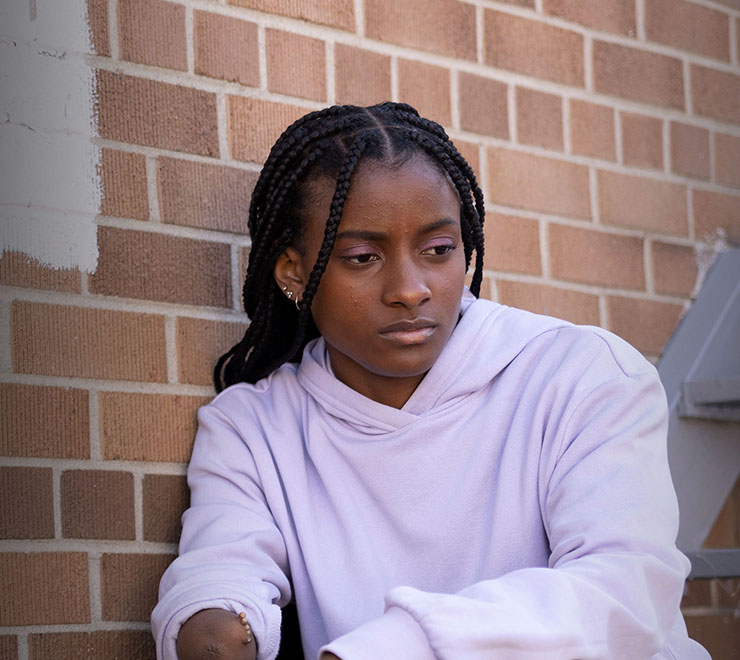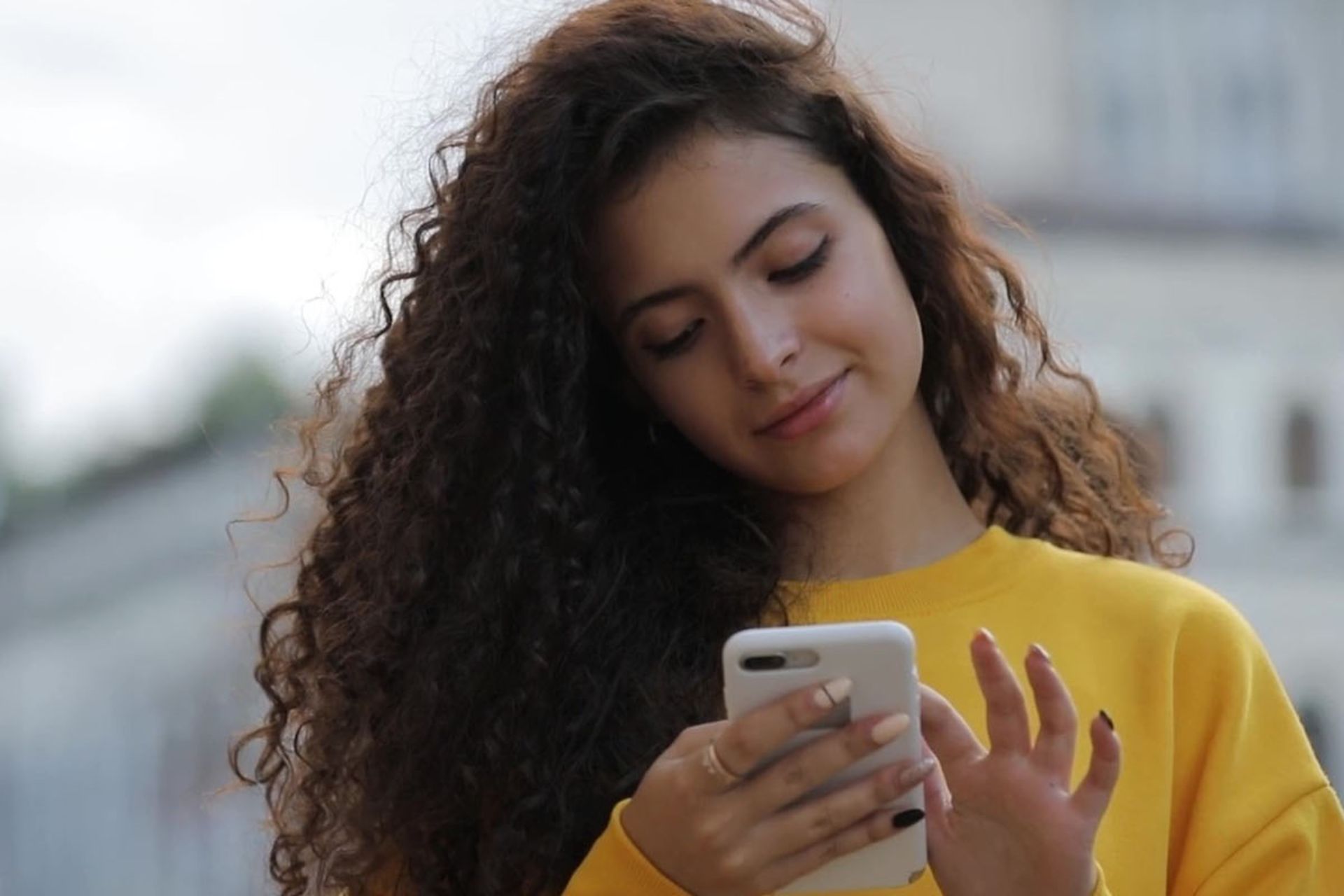Kids Help Phone’s trained, volunteer crisis responders offer free, confidential text support to young people in Canada, 24/7. But what is a crisis responder at Kids Help Phone? And how can they help young people through text-based support? In this interview, you can get to know Kris (he / him), one of Kids Help Phone’s volunteer crisis responders. He chats about his journey with Kids Help Phone, his experiences as a Black man and his passion for our texting service for Black youth.
Young people across Canada can connect with Kids Help Phone’s e-mental health services for support at any time. Black youth who identify as African, Caribbean, Black or a part of the Afro-diaspora can access free wellness support 24/7 by texting RISE to 686868.
Hi Kris! To start our Q&A, can you tell us how long you’ve been a volunteer crisis responder with Kids Help Phone?
“I’ve been a volunteer crisis responder with Kids Help Phone for eight months.”
We’d love to get to know you better. Can you describe yourself in three words?
“I would say that I am thoughtful, joyful and creative.”
Do you have any pets (plants count!)?
“I don’t have any pets, but I dream of having a dog one day. I do have an aloe plant.”
What’s something you like to do for fun?
“I like to play Dungeons and Dragons. It’s really fun to make a character and role-play how they would act in the fantasy world you’re in. The battles in the game can also get pretty intense, with a lot of them coming down to a single dice roll. If you like fantasy novels, video games or acting in general, I’d highly recommend.”

KHP is honoured to share creative content submitted by youth from coast to coast to coast as they Feel Out Loud with us. We thank the creator of this piece Jaylah A’Drianna H. for their contribution to youth mental health and well-being in Canada.
What made you want to offer text support at Kids Help Phone?
“I wanted to be able to help people who didn’t have anyone in their own lives who they could go to when they were in need of help and support. When I was a kid, I often felt alone and like I had no one to turn to. I don’t want other people to have to feel that way. As a Black man, I’m especially passionate about helping to ensure Black youth have people they can turn to when they’re in need through RiseUp powered by Kids Help Phone.”
Can you describe what a volunteer crisis responder does to provide text support?
“A volunteer crisis responder helps by providing a space for texters to talk about whatever they’re going through. Volunteer crisis responders try to help texters feel comfortable, so that they can openly share issues they’re facing that they might not have talked about with anyone before. The volunteer crisis responder also helps the texter think of possible action / safety plans for their concerns, or ways they can manage difficult emotions arising from similar issues in the future.”
What training did you do to become a volunteer crisis responder?
“The training required is an in-depth course where trainee crisis responders learn how to talk to people in crisis. Trainees go through mock crisis conversations and watch videos on communication skills. They learn about how best to help someone feel comfortable opening up in a conversation. Trainee crisis responders also learn how to help ensure texters leave a conversation feeling supported and confident that they can face whatever challenge they’re coping with.”
You can explore more ways to get support and resources from:
What happens when someone texts Kids Help Phone?
“When someone texts Kids Help Phone (e.g. a Black young person texts RISE to 686868, etc.), they get an immediate, automated message welcoming them to the service. The system asks them what’s on their mind. It also states that the conversation is completely confidential unless someone is at immediate risk of harm / danger and / or discloses abuse. The texter is then directed to a live, volunteer crisis responder. The volunteer crisis responder greets them and asks for more information about the challenge they’re facing.”

Artwork by Jaylah A’Drianna H. For more creative content by youth in Canada, you can explore the Feel Out Loud Community Creator Space.
If a volunteer crisis responder is providing text support and becomes concerned about someone’s safety, what happens?
“If someone is at immediate risk of harm / danger and / or discloses abuse, then the volunteer crisis responder has a duty to report. This means they’ll engage emergency services (usually a local child protection service, paramedics or, less commonly, police) to help support the person’s safety. The volunteer crisis responder will make an effort to continue their conversation with the texter until the situation is resolved, and / or emergency services have taken over.”
What are a few ways someone can help another person if they’re in crisis?
“One of the ways you can help someone in crisis is by letting them talk. You can try to listen to what they have to say, without judgment. A person’s challenges may feel a lot more unmanageable when they’re bottled up. By hearing someone out, you’re doing a lot to help them cope with what they’re going through. Other ways you can help someone are by offering them resources that are relevant to the specific issue(s) they’re facing, whether that’s anxiety, self-harm, depression or anything else.”
What are some common topics Black youth are seeking text support about?
“Some common topics Black youth text about are managing anxiety and depression, feeling at odds with their parents / caregivers, culture / religion and racism / racialized violence.”
What barriers do you think Black youth can face when seeking mental health support?
“One of the barriers that Black youth can face when seeking mental health support is the prevailing belief in the Black community that mental health issues aren’t ‘real issues.’ The notion is that you can overcome mental health concerns just by ‘toughening up’ and ‘getting over it.’ And if you do seek out support, that means you’re ‘weak.’ Black youth may also have difficulties finding affordable mental health support and care, as well as finding care that is accessible to them.”
And lastly, what’s your favourite way to practise self-care after a shift?
“My favourite way to practise self-care after a shift is to listen to a comedy podcast. They usually get me laughing in minutes, and that’s a great way to unwind and de-stress.”
You can get to know more of Kids Help Phone’s volunteer crisis responders and professional counsellors by tapping on the resources below:
Are you searching for more resources / support? Young people in Canada can connect with Kids Help Phone’s e-mental health services at any time.
Kids Help Phone would like to thank volunteer crisis responder Kris for sharing his story in support of youth mental health. With permission, we edited Kris’s responses for length and style.


















